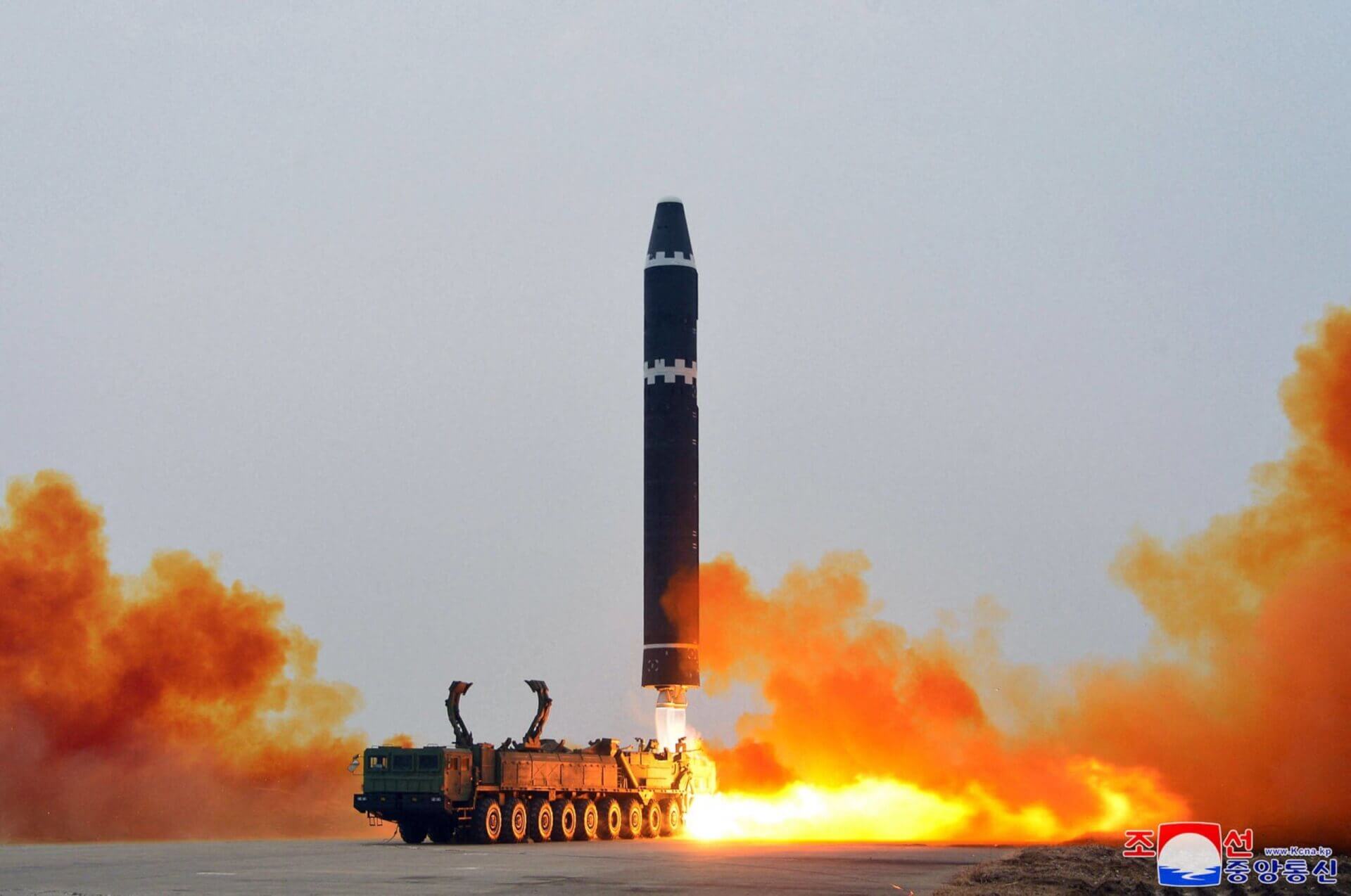North Korea on Thursday test-fired another intercontinental ballistic missile (ICBM), which landed in the waters separating Japan and the Korean peninsula, prompting the nuclear envoys of the US, Japan, and South Korea to respond with a “decisive international response.”
First Solid-Fuel ICBM Launch
South Korea’s Joint Chiefs of Staffs said that the missile was launched on a “high angle” from near the North Korean capital of Pyongyang, but did not provide specifics. It landed outside Japan’s exclusive economic zone (EEZ) after a 1,000-kilometre flight.
South Korea described the missile’s range as medium or long, while the US National Security Council (NSC) classified it as a long-range missile, and Japan said it likely had an intercontinental range.
An anonymous South Korean defence official told AP that the latest launch was possibly one of its kind and may have used solid fuel.
The Ballistic Missile launched from North Korea is almost certainly a Intercontinental Ballistic Missile (ICBM) due to the amount of time it has been Airborne over the Sea of Japan and what now appears to be the Japanese Islands; however it most likely does not contain a Warhead. pic.twitter.com/vHk71ZsI8G
— OSINTdefender (@sentdefender) April 12, 2023
If Pyongyang really did launch a solid-fuel ICBM, it would be the secretive regime’s first such test. Previously, the country’s known ICBMs have all used liquid propellants that require fuelling before launches. However, the fuel in a solid-propellant weapon is already loaded, which allows it to be fired quicker and moves easier.
International Reaction
The launch prompted Japan to issue a brief evacuation order to residents in its northernmost island of Hokkaido, with alarm sirens blaring through community speakers, urging citizens to evacuate.
Authorities also instructed people to seek shelter, and temporarily shut down train, bus, and subway services on the island.
Meanwhile, US NSC Spokesperson Adrienne Watson said the latest test “needlessly raises tensions and risks destabilising the security situation in the region.” She added that Washington “will take all necessary measures to ensure the security of the American homeland and South Korean and Japanese allies.”
Officials of South Korea’s National Security Council stressed the need to strengthen trilateral security cooperation with Japan and the US. In a telephone conversation following the launch, nuclear envoys of the three countries called for a “decisive and united international response.”

